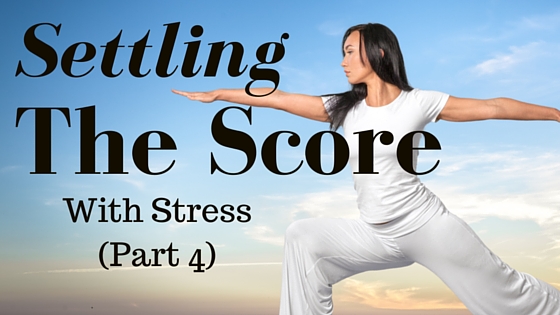Very often, it can seem as if relaxing is easier said than done. In the final installment in our four-part series on stress, we’d like to provide you with effective ways to relieve stress using relaxation techniques. Best of all, most of these techniques are painless to implement in your daily life.
We suggest that you begin by looking through the list of relaxation techniques and notice which ones stand out to you. Afterwards, consider how you may incorporate some of these techniques on a limited basis into a day. For example, try practicing deep breathing for five minutes during your lunch-hour.
As you try new relaxation techniques, notice how they affect your response to stress, or your symptoms, and then decide if you’d like to devote more time to a particular technique. Of course, if you have any questions or concerns, discuss them with your doctor or a mental health professional, such as a therapist or a counselor.
With that, let’s jump right in! Here are some options to help you relax and manage your stress levels:
Progressive Muscle Relaxation Progressive muscle relaxation is an easy way to relax the body. Progressive muscle relaxation involves tightening or tensing the muscles and then letting go and relaxing them. To try this technique, follow these steps:
- Find a place where you will not be interrupted.
- Sit or lie in a comfortable position.
- Close your eyes and breathe in and out deeply.
- Begin the tensing-and-relaxing process with the bottoms of your feet and your ankles. Place your awareness on your feet and ankles and make them tense and rigid. Then, let the tension go and relax. Notice how the muscles in your feet and ankles feel as the tension flows out of them.
- Continue the tensing-and-relaxing process by moving up your legs and through your torso, hands, arms, shoulders, neck, head, and face. Make each part of your body feel tense for a moment; then let the tension go. Continue to breathe deeply and keep your eyes closed. Notice how the relaxation feels in each part of your body.
Deep Breathing – This technique is beautifully simple and can help you feel calmer. All you have to do is breathe in deeply, hold your breath for a few seconds, and exhale slowly. Repeat this process a few times.
Physical Exercise – People who get regular physical exercise seem to respond better to stressful situations. Although researchers disagree on the reasons for this improved response, they have noted that exercise does seem to increase certain brain chemicals, such as norepinephrine, that enhance the body’s ability to deal with stress. Go for a walk, go to the gym, or ride a bike—the options are nearly endless.
Develop Your Interests – Think of things that make you smile and do them regularly. Your list of favorites might include writing, reading, painting, dancing, listening to your favorite music, or spending an afternoon at an art gallery with a friend. As long as you enjoy it, the activity can help you relax.
Meditation – Meditation can help quiet your mind. The simplest meditation technique is to focus your attention on an object or spot in the room. Find a quiet place where you will not be interrupted. Gaze at the object or spot, concentrating your attention on it for a few minutes and breathing slowly and deeply. If your mind wanders, simply bring your attention back to the object or spot.
Affirmations – An affirmation is a positive statement that you can repeat to yourself throughout the day. Many people who use affirmations make a list of 5 to 10 statements and write them on a card. Here are some examples of positive affirmations:
- I am calm and relaxed.
- I am free of all worry and stress.
- I meet stressful situations with calm and determination.
- I take good care of my mind and body.
- I attract positive energy.
Journaling – Writing is an excellent way to explore your feelings and thoughts. Doing so can help you identify sources of stress in your life and express your feelings about them. Here are some starters for you:
- Describe what happened today and how you felt about it.
- Write a letter to a person with which you are angry. Say everything you are feeling and wish you had the nerve to say.
- Make a list of all the things for which you are grateful. List all of the big things and all of the small things, as well as everything in between.
- Make a list of the things that you feel upset about right now. Write down as many as you can; then choose to elaborate on the top five.
Take a Warm Bath – This technique can be very easy to implement. You just need a bathtub and warm water. Add relaxing bath salts, light some candles, or play soft music.
Connect – Sharing your experience of stress can be therapeutic, particularly when you’re reminded that others experience it too and manage it successfully in their daily lives, often with the help of mental health professionals.
At TherapyWorks, our friendly and experienced therapists are qualified to help you implement relevant and effective solutions that you’re looking for. We take great care to ensure that you are supported by a responsive service team, offering convenient scheduling options, evening and weekend appointments, and contemporary privacy practices.
We encourage you to take advantage of a free consultation in either our Los Gatos or Santa Cruz locations. Contact us today, and we’ll assist you happily.
